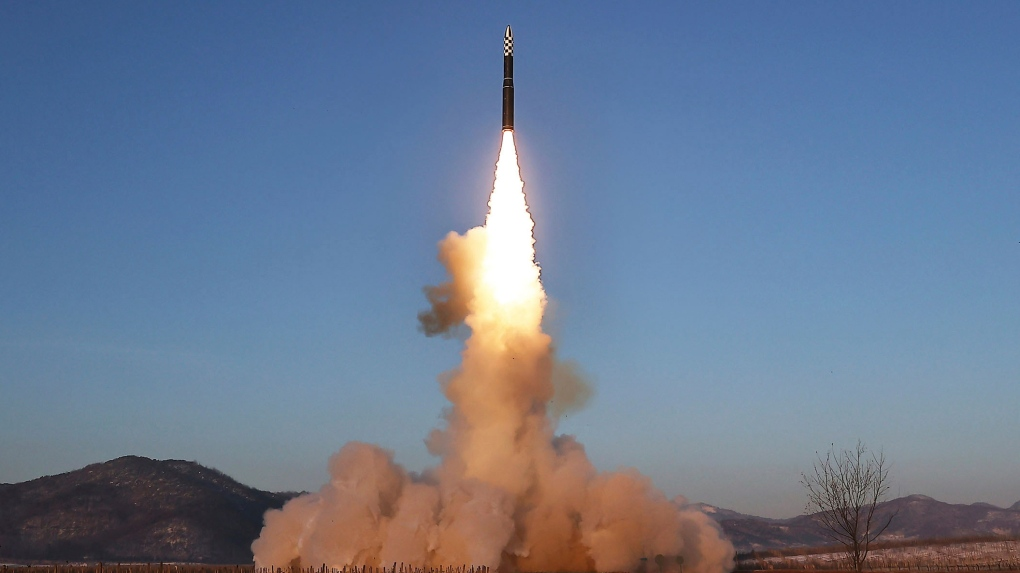
On Tuesday, December 19, 2023, the North Korean government released an unspecified date photo displaying what they claim to be a test launch of an intercontinental ballistic missile. Independent journalists were not allowed to cover the event, and the authenticity of the image cannot be independently verified. The Korean Central News Agency (KCNA) watermark on the image is as provided by the source.
North Korean leader Kim Jong Un has reiterated his country's readiness to launch a nuclear strike on its adversaries if provoked, according to state media reports on Thursday. Commending the troops involved in the recent intercontinental ballistic missile (ICBM) test, Kim emphasized the significance of the developmental solid-fuelled Hwasong-18 missile, North Korea's newest and most potent ICBM.
This declaration follows North Korea's first ICBM test in five months on Monday, which the nation described as a response to perceived confrontational actions by the United States and South Korea. Specifically, North Korea pointed to a recent meeting between the U.S. and South Korea aimed at enhancing their nuclear deterrence plans.
Kim's meeting with the troops from the General Missile Bureau focused on congratulating them on the successful missile launch, with Kim highlighting the evolution of North Korea's nuclear doctrine. He underscored the commitment to a war posture that includes preemptive strikes to instill fear in the enemy and ensure peace, as reported by the Korean Central News Agency (KCNA).
Last year, North Korea implemented a law outlining various scenarios in which it could deploy nuclear weapons. In 2022 alone, the country has conducted about 100 ballistic missile tests, some of which targeted the U.S. and South Korea. The Hwasong-18 launch on Monday marked the third test-flight of this particular weapon this year.
In response to North Korea's actions, the U.S., South Korea, and Japan have heightened cooperation, sharing real-time missile warning data and planning trilateral exercises. Joint aerial training involving U.S. B-1B bombers with South Korean and Japanese warplanes was conducted to demonstrate strength against North Korea.
The U.S. and South Korean governments have consistently warned that any use of nuclear weapons by North Korea would lead to the downfall of the Kim Jong Un regime. They view North Korea's missile launches as threats to international peace and violations of Security Council resolutions.
In a rare emergency UN Security Council meeting on Tuesday, the U.S., South Korea, and their allies condemned North Korea's missile launches, emphasizing their breach of Security Council resolutions. Kim Yo Jong, Kim Jong Un's sister and a senior official, expressed displeasure over the meeting, attributing it to the "brigandish demand of the U.S. and its satellite countries." She urged the UN council to hold the U.S. and South Korea accountable for ongoing military provocations.
Despite the international condemnation, it is unlikely that North Korea will face additional sanctions. China and Russia, involved in separate disputes with the U.S., have consistently blocked UN Security Council responses to North Korea's banned ballistic missile tests.
In a joint statement released on Thursday, top diplomats from South Korea, the U.S., and Japan underscored the importance of implementing UN Security Council resolutions prohibiting North Korea from acquiring technologies and materials to advance its missile program. The three countries pledged close collaboration with the international community to thwart North Korea's attempts to finance its weapons programs through the exploitation of overseas workers and malicious cyber activities.















